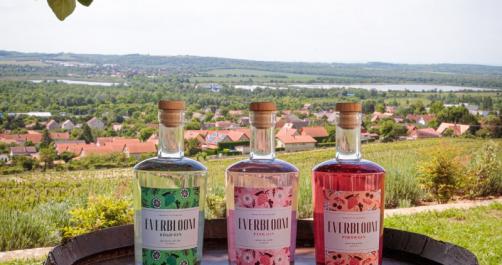
Why Grape‑Based Gins Are Gaining Momentum
In recent years the craft‑spirit market has evolved beyond the traditional juniper‑infused base that defines classic gin. Producers now look for novel botanicals that offer distinct aroma profiles and often a stronger link to local terroir. Grape‑based gin fits this trend perfectly: it revitalizes surplus wine‑grape supplies, turns waste into premium products, and creates a narrative that resonates with sustainability‑conscious consumers.
University of Pécs and Danubiana Ltd. Drive the Innovation
The research initiative titled “Research of new grape‑based, aroma‑free, extra‑fragrant, new gin products and gin technology” was launched as a partnership between the University of Pécs (PTE) and the Hungarian distillery Danubiana Ltd. This consortium combined academic research expertise, advanced laboratory facilities, and decades of commercial winemaking experience. Funding—totaling almost HUF 430 million—was provided by the European Regional Development Fund and national EU‑JPG funds.
From Concept to Prototype
The project spanned more than three years, during which teams explored every stage of production—from grape selection and fermentation to distillation and botanical blending. Key milestones included:
- Developing a pH‑adjusted fermentation protocol that preserves the unique volatile compounds of grape skins and seeds.
- Testing a range of grape varieties (both traditional Hungarian cultivars and new, disease‑resistant lines) for aroma potential.
- Experimenting with unconventional botanical additions such as grape flowers, leaves, and seeds, which historically have been unused.
- Establishing a scalable distillation process that retains the subtle fruit character without masking it with heavy juniper.
Three Distinct GIN Profiles
After extensive laboratory trials and in‑plant validation, the consortium produced three commercially viable gins:
- Green Gin – a light, crisp spirit with fresh green grape notes, ideal for early‑year cocktails.
- Pink Gin – featuring soft berry undertones, suitable for summer spritzers.
- Red Gin – enriched with deeper fruit aromas for late‑season sipping.
Each product meets marketable quality standards and carries its own distinct flavor profile, demonstrating the versatility of grape as a distillation base.
Implications for the Spirits Industry
By converting surplus and unsold grape quantities into high‑value gin, producers can reduce waste and improve ROI. Additionally, grape‑based gin offers a unique selling proposition for regional branding: the beverage tells a story of local agriculture and innovation.
Case Study: Sustainable Business Model
Assume a small distillery in Hungary already has a surplus of grape must after wine production. Instead of stacking the residue or exporting it, the distillery can partner with a research body like PTE to develop a grape‑gin line. The production process benefits from:
- Reduced input cost – the grape material is a by‑product.
- Enhanced market differentiation – consumers increasingly seek local and sustainable offerings.
- Potential export appeal – a novel spirit with robust flavor can attract foreign niches that value terroir.
Potential Regulatory and Market Challenges
While the concept is promising, distillers must navigate a few hurdles:
- Ensuring compliance with spirit licensing regulations when using alternative botanical bases.
- Educating the market: informing retailers and consumers that grape‑gin behaves similarly to classic gin.
- Establishing supply chains for consistent grape material, especially in regions with seasonal harvests.
How to Get Involved
Researchers, entrepreneurs, and distillers interested in exploring grape‑based gin production can collaborate with the University of Pécs. The research institute offers expertise in fermentation, distillation, and product development.
Academic Partnerships
Graduate students or faculty interested in applied oenology and spirits can request joint projects. UPG research grants are available for interdisciplinary work that integrates viticulture with distillation science.
Business Consultations
Many distilleries would benefit from a workshop covering the technical aspects of the new gin line. The University’s extension services can plan tailored sessions.
Contact the University of Pécs today to explore partnership opportunities and bring grape‑based gin to market.
Take the Next Step
Whether you’re a producer looking to diversify, a researcher seeking collaboration, or a consumer curious about the science behind the spirit, the future of grape‑based gin is tangible and accessible.
Are you ready to add a new dimension to your product catalog? Reach out to the University of Pécs and begin the journey from grape to gin.
For more details on research opportunities and product development, visit the University of Pécs website and explore how to connect with their International Relations office for global engagement.

